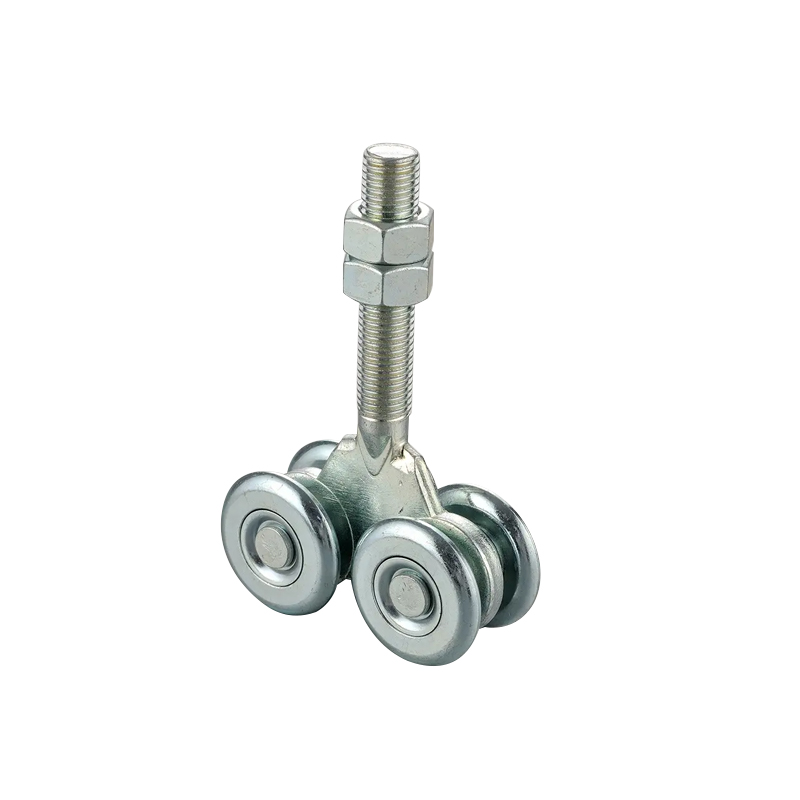No. 200 Gaoxin RD, Shanghua St, Lanxi, Zhejiang, P. R China
The multiple sizes high precision rack pinion gear system is an essent...
See DetailsSliding doors and gates rely heavily on several mechanical components to ensure smooth, reliable, and long-lasting operation. Among these components, bearing wheels, surface-treated runner wheels, and heavy duty gate roller wheels stand out as critical elements. Each of these plays a specific role in the overall function and durability of sliding systems.

Sliding door bearing wheels are essential parts designed to support the weight of the door and facilitate its smooth, controlled movement along a track. These wheels incorporate bearings—often ball or roller bearings—that reduce friction between the moving parts and allow the door to glide with minimal effort.
The primary function of bearing wheels in sliding doors is to ensure effortless operation while maintaining stability and alignment. Because sliding doors, particularly those made of glass or metal, can be heavy, the bearing wheels must be capable of supporting significant loads without deforming or causing uneven wear on the track.
Bearing wheels also contribute to the door's noise reduction. Smooth-rolling bearings minimize the grinding or squeaking sounds that can occur with cheaper or worn-out wheels. This quality is particularly valuable in residential or office settings where quiet operation is preferred.
The performance and durability of sliding door runner wheels are significantly influenced by the type of surface treatment applied to them. Runner wheels are the components that run along the sliding track, bearing the door's weight and facilitating its movement. Proper surface treatment enhances their resistance to wear, corrosion, and environmental factors.
Common surface treatments for sliding door runner wheels include galvanization, powder coating, and anodizing. Galvanization involves applying a zinc coating to steel wheels to protect against rust and corrosion. This treatment is particularly important for outdoor sliding doors exposed to moisture and varying weather conditions.
Powder coating adds a durable and aesthetically pleasing layer of protection that resists chipping, scratching, and fading. It also provides some resistance against corrosion and helps maintain the wheel's structural integrity over time.
Anodizing, mainly applied to aluminum runner wheels, enhances corrosion resistance and increases surface hardness. This treatment also improves the appearance of the wheels, which can be important in visible installations.
Surface-treated runner wheels are less likely to accumulate rust or degrade quickly, resulting in smoother operation and reduced maintenance needs. The choice of treatment depends on factors such as the material of the wheel, environmental conditions, and expected usage.
Heavy duty gate roller wheels are designed to handle the substantial weight and frequent use typical of industrial, commercial, or large residential gates. These rollers are engineered to provide durability, strength, and smooth operation even under demanding conditions.
Constructed from materials such as hardened steel, stainless steel, or reinforced nylon, heavy duty rollers are capable of supporting high loads while resisting deformation. Many incorporate sealed ball bearings or tapered roller bearings to facilitate smooth rotation and reduce friction, which is crucial for heavy gates that require frequent movement.
The design of heavy duty gate roller wheels also focuses on stability and alignment. Properly engineered rollers help maintain the gate's position on its track, preventing misalignment that can bring about jamming or uneven wear. This is particularly important for gates exposed to outdoor elements, where debris and uneven ground surfaces can challenge smooth operation.
Maintenance of heavy duty gate rollers involves regular cleaning to remove dirt and debris and periodic lubrication to keep bearings functioning correctly. Due to the high loads involved, these rollers may require more frequent inspection compared to lighter-duty wheels to avoid sudden failures.